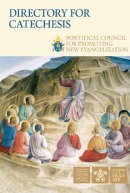Book Review: Good and evil in the interior life
Article:
01.09.20
Good and evil in the interior life
Spiritual Warfare and the Discernment of Spirits by Dan Burke, Sophia Institute Press, 128 pp, £10.99 reviewed by Pravin Thevathasan
The word “discernment” is very much in vogue in some Catholic circles currently. But what does it mean? In this concise, readable and thoroughly enjoyable work, Dan Burke, founder and president of the Avila Institute for Spiritual Formation, gives us the orthodox Catholic answer.
The interior life
He begins by briefly telling us something about himself. He converted to Protestantism from Judaism and later became a Catholic. He then proceeds to give us various biblical descriptions of spiritual warfare. The interior life is always a spiritual warfare. We are called to resist our evil desires, desires we so often rationalize. But in the spiritual warfare, we are not simply dependent on ourselves: we need to always be mindful that this war is easily won by means of grace. God is in charge, not us.
The Discernment of Spirits is a term we associate with St Ignatius of Loyola. But it is also thoroughly biblical: St Paul refers to it in his First Letter to the Corinthians, for example. I have previously struggled to understand what is precisely meant by these Ignatian rules. The author makes it easier for us to understand by providing us with many homely examples. For example, in the first rule, we are at the beginning of our interior life, moving away from a state of mortal sin to a state of grace. It is the good spirit that disturbs us while the evil spirit encourages us to continue as before.
But in the second rule, when we are in a state of grace and resisting sin, it is the good spirit that encourages us to persevere in prayer. He fills us with consolation and inspirations. It is the evil spirit that will disturb us, tempting us to return to our former ways. The Discernment of Spirits allows us to rid ourselves of those negative tendencies that keep us from God. It allows us to deal appropriately with the state of desolation, a state that is all too common. Above all, it helps us move from sin to the love of God.
Counterfeit spiritualities
The author describes various counterfeit spiritualities on offer these days. The book was fully worth reading just for this section. Mindfulness, for example, is on offer everywhere. But it has nothing to do with the life of grace or the practice of the virtues. And without these latter things, there will be no interior life. I also remember discussing this emptying of the mind with a great Jesuit who was based in South London many years ago, and he was convinced that this state opens us up to demons.
A tailored plan
The author reminds us that we all need a plan of life that is tailored for us. This is surely where spiritual direction is essential, but finding a director may prove difficult. The author goes through the essential norms we need. Most of us in normal times have ready access to the Holy Eucharist. This is central to our interior life, as is frequent confession. Prayer, especially mental prayer and the Rosary, should be in our plan of life. Along with regular prayer and the sacraments, we need regular Discernment of Spirits.
In slightly over a hundred pages, the author has given us a concise description of spiritual warfare and the Discernment of Spirits, a tremendous achievement.
Notes:
Dr Pravin Thevathasan is a consultant psychiatrist and author of the CTS booklet Catholicism and Mental Health.





